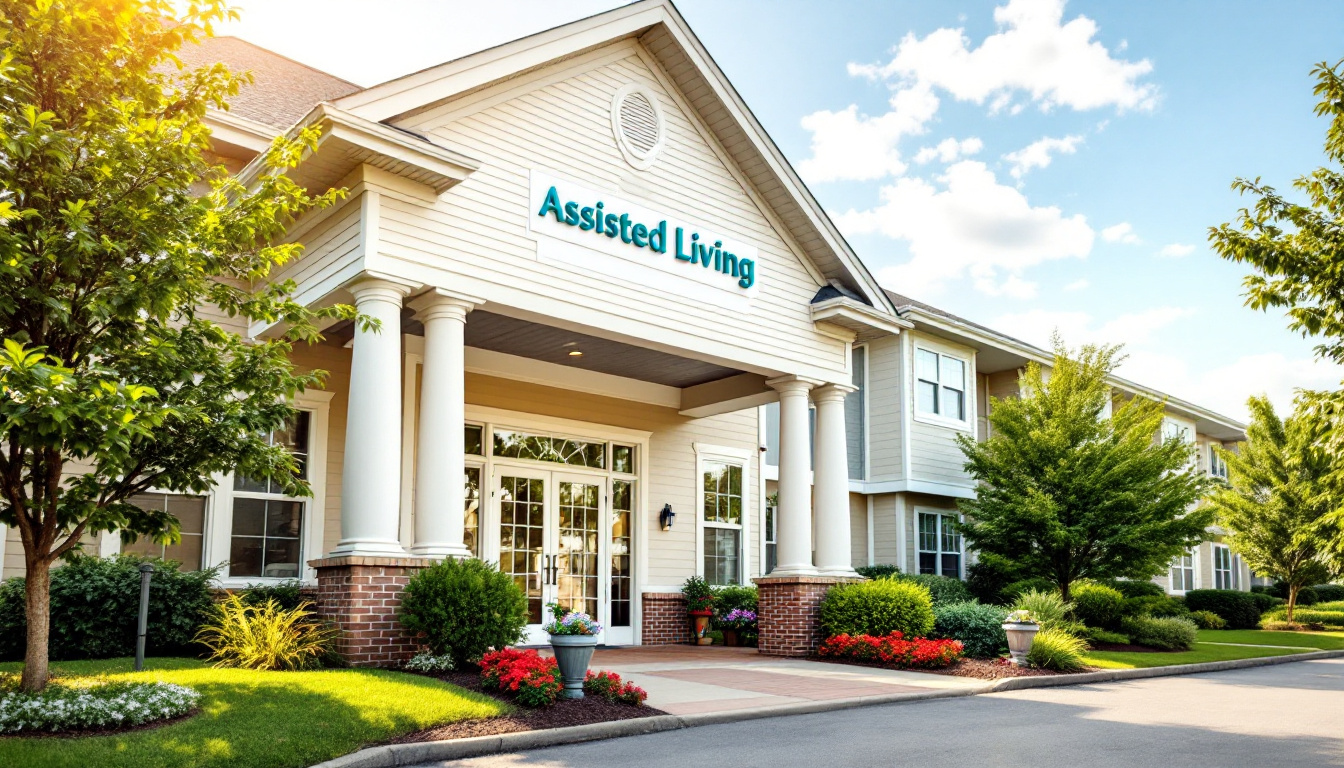How to Support Your Loved One’s Dignity and Independence in Senior Care
Fostering Respect and Autonomy in Senior Care

Understanding the Foundations of Dignified Elderly Support
Supporting a loved one's dignity and independence in senior care requires a thoughtful balance of personalized assistance, respectful interactions, and innovative solutions. As aging progresses, ensuring that seniors maintain control over their lives enhances their well-being, emotional health, and overall quality of life. This article explores effective strategies, principles, and practical tips for caregivers and families to foster an environment where the elderly feel valued, autonomous, and respected.
The Importance of Personalized In-Home Care Services
What is the most requested support service for seniors?
In-home care services are increasingly popular among seniors and their families because they promote independence and allow seniors to remain in familiar surroundings. The most commonly requested support service is in-home care, which provides essential assistance tailored to individual needs.
Among these services, laundry help is particularly in demand. This is especially true for seniors with physical limitations, conditions like Alzheimer’s or dementia, or those recovering from surgeries or illnesses. Providing practical support such as laundry, personal care, medication reminders, and fall prevention helps seniors manage daily routines more comfortably while maintaining their dignity.
Professional care providers like Custom Home Care have been serving seniors in Chicago since 1994. They offer comprehensive packages that include personal care, medication management, companionship, and more, all supervised by nurses. Their services are available 24/7, which provides reassurance and consistent support.
Types of assistance available
In-home care can include a variety of services designed to support seniors’ physical, emotional, and social needs:
- Personal hygiene and grooming
- Medication management and reminders
- Light housekeeping and laundry
- Meal preparation and nutritious feeding
- Assistance with mobility and fall prevention
- Companionship and mental engagement
- Transportation to appointments and social activities
This variety ensures that seniors receive the right level of support while having control over their routines.
Benefits of personalized care
Personalized in-home care respects the individual preferences, routines, and cultural values of each senior. This fosters a sense of independence and dignity, crucial for emotional well-being.
Care providers tailor their services to meet changing needs, which supports physical health and boosts self-esteem. Additionally, involving seniors in decision-making about their care plans helps them maintain autonomy and self-worth.
Safety is also prioritized through environmental modifications, assistive devices, and ongoing health monitoring. Technologies like medical alert systems and home monitoring enhance safety without limiting independence.
Together, these personalized approaches ensure that seniors enjoy a high quality of life, stay engaged within their communities, and experience support that truly respects their individuality.
Strategies to Promote Independence Through Daily Activities and Environment Modifications

How can encouraging engagement in hobbies and chores support seniors’ independence?
Involving seniors in hobbies and everyday chores is an effective way to keep their minds active and spirits high. Activities like gardening, needlework, baking, or sharing stories not only foster a sense of usefulness but also promote mental stimulation. When seniors participate in decision-making about these activities, it enhances their sense of control and self-worth.
Supporting their involvement by adjusting tasks, such as helping with baking in a way that accommodates physical limitations, maintains their sense of autonomy. Additionally, engaging them in simple household chores—like drying dishes or watering plants—can reinforce their independence while providing regular activity that benefits their emotional and cognitive health.
What environmental modifications create a safer living space?
Making the home safer and more accessible is crucial for encouraging independence. Installing grab bars in bathrooms, ramps at entrances, and improving lighting help prevent falls and reduce hazards. Use of safety aids such as medical alert systems allows seniors to call for help quickly if needed, providing peace of mind without compromising their freedom.
Home modifications should be tailored to individual needs, taking into account physical capabilities and any health concerns. These changes support seniors in managing their routines more confidently while preserving their dignity.
How do physical and mental exercises contribute to independence?
Regular physical activities like walking, stretching, swimming, or biking—adapted to the senior’s limitations—are vital for maintaining strength, balance, and mobility. These exercises lower the risk of falls and help seniors remain active longer.
Mental exercises such as puzzles, memory games, or brain training apps are also beneficial. They help sustain cognitive functions, which are essential for decision-making and managing daily tasks.
Coupled with a supportive environment, these activities foster a sense of accomplishment and autonomy, reinforcing seniors’ independence.
| Strategy | Examples | Benefits |
|---|---|---|
| Engagement in hobbies and chores | Gardening, baking, storytelling | Mental stimulation, emotional well-being |
| Creating a safe living space | Grab bars, ramps, proper lighting | Reduced fall risk, increased confidence |
| Supporting physical and mental activities | Walking, swimming, puzzles, memory games | Maintains strength, cognitive sharpness |
By adopting these strategies, caregivers can help seniors enjoy a vibrant, independent life while ensuring their safety and dignity.
Fostering Dignity and Respect in Elderly Care and End-of-Life Support

How can we promote dignity and respect in age-related care and at end of life?
Promoting dignity and respect in caring for seniors and at the end of life involves adopting a person-centered approach. This means valuing each individual’s unique preferences, cultural background, religious beliefs, and life history. By acknowledging these aspects, caregivers can provide tailored support that honors personal identity and life choices.
Supporting autonomy is crucial. Care staff should involve seniors in decisions about their daily routines, care plans, and the use of personal belongings. Giving older adults control over their lives reinforces their sense of independence and self-worth. Respecting privacy and personal space during care activities, such as bathing or dressing, helps maintain their dignity.
Communication plays a vital role. Caregivers should use respectful and empathetic language, maintain eye contact, and listen actively. Gentle, tactful approaches during personal care and offering options whenever possible foster trust and comfort.
Sensory and aesthetic considerations also matter. Presenting meals attractively and dressing seniors in clothing of their choice can restore normalcy and boost self-esteem. Encouraging social interactions and facilitating connections with loved ones help preserve a sense of belonging.
Honoring each individual’s identity and life story creates a supportive environment that promotes purpose and emotional well-being. Recognition, empathy, and respect are the foundation of compassionate care, ensuring that dignity is preserved until the very end.
The Role of Technology and Community Support in Empowering Seniors

How can technology and community support promote seniors' independence?
Technology plays a crucial role in helping seniors live independently by providing tools that enhance safety and ease daily routines. For example, self-driving vehicles can assist those who have difficulty with transportation, while internet connectivity keeps them connected with family and friends, reducing feelings of isolation.
Assistive devices such as medical alert systems enable seniors to summon help quickly in case of emergencies. Mobility aids like walkers and wheelchairs support physical movement, and smart home technologies—such as monitoring sensors and voice-activated systems—help manage household safety and daily tasks.
Community resources also contribute significantly. Local agencies offer supportive services like meal deliveries and wellness programs. Adult day programs provide social engagement and activities to keep seniors active and mentally stimulated.
Emergency systems, including alarm systems and quick-access communication devices, provide peace of mind to both seniors and their caregivers. By combining innovative technology with accessible community programs, seniors can maintain control over their lives, enjoy safety in their homes, and preserve their sense of independence.
Leveraging these resources encourages social interaction, supports health management, and ensures a safe environment, all of which sustain seniors’ autonomy and improve overall well-being.
| Technology Options | Community Resources | Safety and Support Systems |
|---|---|---|
| Self-driving vehicles | Local senior centers | Medical alert systems |
| Internet for communication | Adult day care programs | Home monitoring devices |
| Voice-controlled assistants | Meal delivery services | Emergency response systems |
| Mobility aids | Wellness and health services | Safety sensors and alarms |
This integrated approach helps seniors stay active, connected, and secure, fostering confidence and independence in their daily lives.
Supporting Emotional Well-being and Social Engagement

What activities can help seniors maintain their mental and emotional health?
Engagement in meaningful social activities, hobbies, and recreational therapies is essential for seniors' mental and emotional well-being. Participating in group events, sharing personal stories, or enjoying hobbies like needlework, music, and gardening fosters a sense of usefulness and social connection.
Cognitive activities such as puzzles, memory games, and brain training applications help keep the mind sharp, preventing cognitive decline. Light physical exercises like walking or stretching also support mental alertness and emotional stability.
Regular socialization efforts by caregivers create opportunities for seniors to interact with friends, family, and community members. These interactions play a vital role in reducing feelings of loneliness and depression.
By encouraging participation in these activities, caregivers promote seniors' independence and help maintain a positive outlook on life. This holistic approach supports emotional resilience, fostering a sense of purpose and belonging in aging.
The Critical Role of Respectful Communication and Active Listening in Elder Care
How can caregivers promote dignity and respect through communication?
Caregivers can greatly enhance a senior’s sense of dignity and worth by practicing respectful and empathetic communication. This includes speaking softly and kindly, making eye contact when engaging, and using the senior’s preferred name. An important aspect is active listening—giving full attention when the senior speaks and acknowledging their feelings and concerns.
Including seniors in decisions about their care, such as meal options or daily routines, reinforces their sense of control and independence. Open and honest dialogue about their preferences helps foster trust and cooperation.
Respecting personal boundaries is also crucial. Caregivers should knock before entering rooms, respect privacy during personal care, and avoid rushing conversations. These small gestures communicate respect and uphold the senior’s dignity, creating a supportive environment where they feel valued.
By consistently employing these communication strategies, caregivers build stronger relationships, reduce stress, and promote a positive, respectful atmosphere essential for optimal senior care.
How can active listening benefit seniors?
Active listening involves focusing entirely on the speaker, understanding their message, and responding thoughtfully. For seniors, this means truly hearing their concerns, preferences, and stories without interruption or judgment.
This practice affirms their feelings, which can boost self-esteem and reduce feelings of loneliness or frustration. It also helps caregivers better understand the senior’s needs and tailor support accordingly.
Simple techniques like maintaining eye contact, nodding, and paraphrasing what is said can make seniors feel appreciated and understood. Encouraging seniors to express themselves and validating their emotions fosters trust and emotional well-being.
In seniors’ care, active listening not only supports effective communication but also nurtures their sense of self-worth and participation in their own care journey.
The importance of empathy and validation
Practicing empathy involves seeing the world from the senior’s perspective and responding with genuine compassion. Validating their feelings—acknowledging their emotions as legitimate—helps them feel heard and respected.
During any interaction, showing empathy might include saying, “That must be difficult for you,” or “I understand why you feel upset.” These phrases confirm that their experiences matter.
Empathy and validation encourage seniors to share more openly, which can lead to better understanding and cooperation. It also creates a nurturing environment where they feel safe to express their needs and preferences.
Fostering respectful conversations through empathy and validation drastically improves the quality of senior care, ensuring that their dignity is maintained at all times.
Enhancing Elderly Dignity and Independence Through Compassionate Support
Supporting seniors in maintaining dignity and independence requires a comprehensive, respectful approach that emphasizes personalized care, technological support, and compassionate interaction. Recognizing each individual's unique needs, preferences, and cultural values fosters a sense of control and self-worth. Employing assistive devices, modifying the living environment, encouraging social and physical activities, and practicing empathetic communication are essential strategies. By integrating these principles into daily care routines, families and caregivers can create a nurturing environment where elders feel valued, autonomous, and respected, ensuring a dignified and joyful aging process.
References
- How Caregivers Can Help Seniors Maintain Their Independence
- Four Ways to Help Older Adults Maintain Dignity and Independence
- How to Support Independent Living: Keeping Your Loved One Safe ...
- 4 Ways At-Home Care Supports Independence And Dignity For ...
- How to Balance a Loved One's Safety and Dignity - FRHC
- Dignity And Respect In Care [+ How To Support Elderly Patients]
- Maintaining dignity of elderly parents as they lose independence.
- Aging in Place: Growing Older at Home
- Encouraging Independence in Aging Loved Ones




































































































